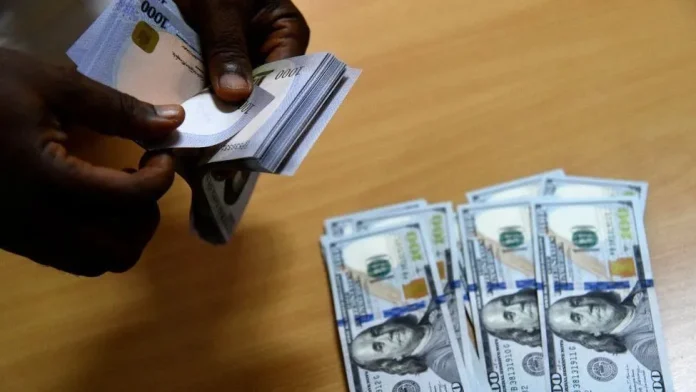Based on market data, Nigeria accomplished a unique feat in the foreign currency (FX) markets: there was no difference between official and parallel market prices. While Nigeria tries to maintain a balance between supply and demand, the Naira was sold for N1469.97 in the parallel market and the Nigerian autonomous foreign exchange window.
The currency rate increased by 0.64% to settle at N1,469.97 per US dollar from N1,479.47 the day before, according to FMDQ statistics. The Naira closed at N1,470 versus the US dollar, up 1.01% on the parallel market.
Even if the rate for the recently ended week was the same, there’s a chance that it will differ in the upcoming week, despite the authority’s goal to close the difference between official and parallel market rates is succeeding.
The monetary authority has left exchange rate determination at the official window to be fixed by demand and supply forces. Nigeria’s dependency on imports has always been strong despite tight FX inflows from FX sales.
To boost FX supply, the government has asked Nigerian National Petroleum Company Limited (NNPCL) to start domiciling US dollar revenue with the apex bank. Broadstreet analysts have lauded the development as critics think the state oil company has been left alone for a long time without proper accounting for crude oil sales.
Data from the Central Bank of Nigeria (CBN) revealed that foreign reserves weakened further by more than $182 million following continuous clearing of FX backlog. As a result, gross external reserves close at USD33.17 billion, resulting in seven months of import cover for Africa’s largest economy by GDP size.
At the Nigeria autonomous foreign exchange market (NAFEM), total turnover increased by 66.7% to USD 2.18 billion on Thursday from the beginning of the week. The surge was attributed to banks’ compliance with the new macro-prudential limit for net open positions.
Also supporting the solid level of inflows registered at the window was the decision by the CBN to remove restrictions on international money transfer operators’ (IMTOs) exchange rate quotes, interbank FX deal spreads and interbank sale of proceeds.
Accordingly, US dollar trades were consummated within the N830.00 – N1,550.00. In the forwards market, the naira rates across the 1-month contract depreciated by -2.5% to N1,467.81, the 3-month forward contract dropped by-2.7% to N1,501.75 and the 6-month contract declined-2.6% to N1,544.63.
Currency traders reported that 1-year forward contract went down by 3.9% to N1,643.94.
“While we expect the pressure on the local currency to persist, we believe the CBN’s updated policy on limiting banks’ foreign currency exposure will continue to support turnover in the NAFEM and improve supply to the market over the short-term”, Cordros Capital Limited said in a note.
Also, with significant gains made with regards to addressing the FX backlog – the CBN governor noted at the start of the week that the backlog had been reduced to USD2.20 billion – the potential for a more stable FX market seems possible, analysts said.













